
OUR PODCAST
Listen on your favorite app
The Overpopulation Podcast
The Overpopulation Podcast (here’s why we use the term “overpopulation”) features enlightening conversations between executive director Nandita Bajaj, researcher Alan Ware, and expert guests to discuss the often misunderstood impacts of our expanding human footprint on human rights, animal protection, and ecological preservation, as well as individual and collective solutions. We are proud to be the first and only nonprofit organization globally that draws the connections between pronatalism, human supremacy, social inequalities, and ecological overshoot. Ranking in the top 1.5% of all podcasts globally, we draw over 20,000 listeners from across 80 countries.
Read our Listener Feedback. | Support this podcast. | Subscribe to our newsletter.
New to our podcast?
There are over 60 episodes of The Overpopulation Podcast. If you are new to the podcast and are looking for a good place to start, we recommend you listen to these episodes first.
Latest Episodes

Catastrophe Ethics: How to Choose Well in a World of Tough Choices
In this episode with bioethicist and moral philosopher Dr. Travis N. Rieder, we discuss his latest book Catastrophe Ethics, in which he explores how individuals can make morally decent choices in a world of confusing and often terrifying problems.

Breaking Out of the Baby Matrix: Busting Common Pronatalist Myths
In this interview with Laura Carroll, internationally recognized expert on pronatalism and the childfree choice, we unpack the many pervasively pronatalist assumptions that people have to navigate while deciding whether or not to have children, and the effects of those decisions on people and planet.
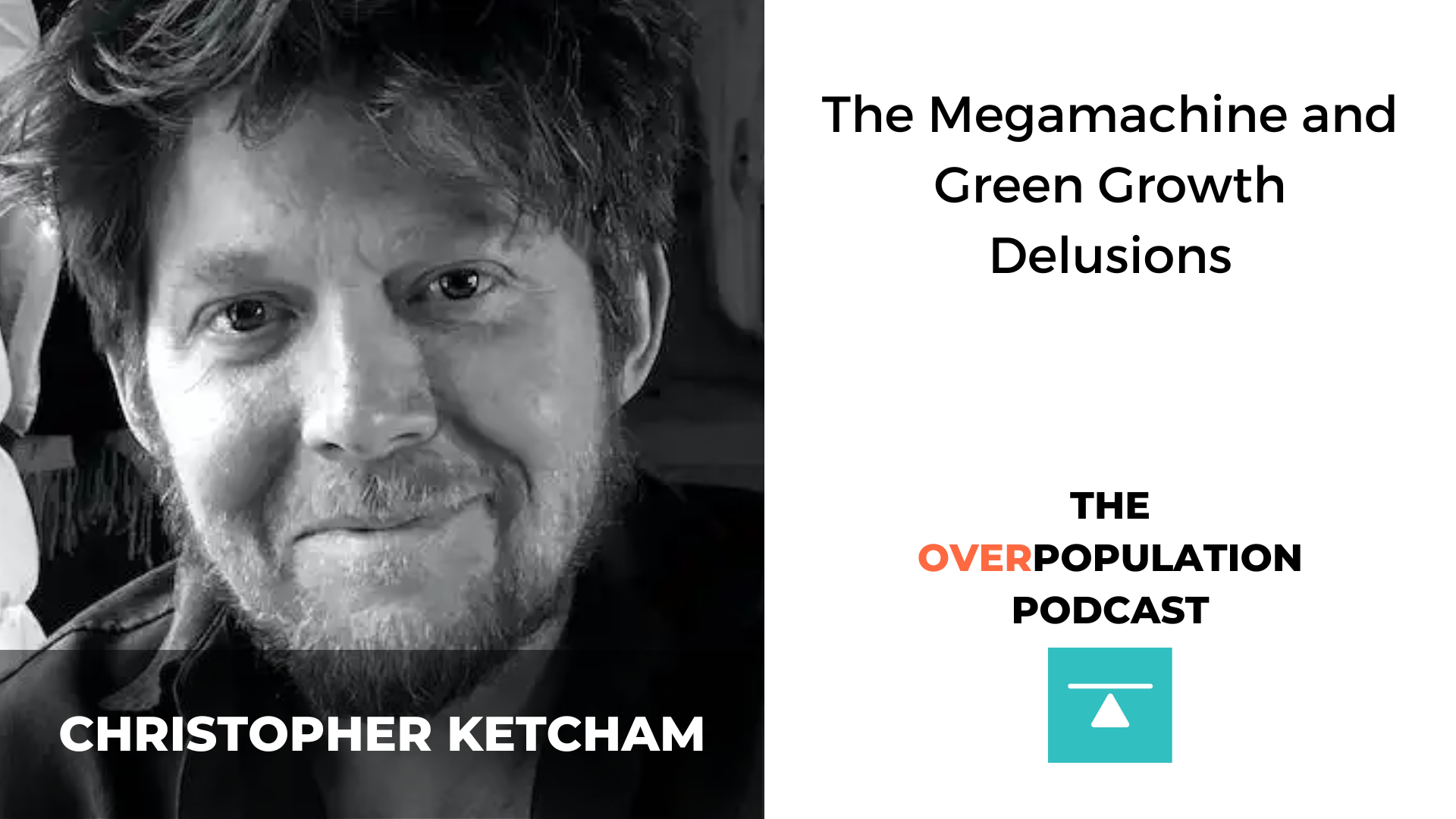
The Megamachine and Green Growth Delusions
In this interview with freelance writer Christopher Ketcham, we unpack the techno-industrial extractivism — through public lands grazing, mining, and drilling — that plagues modern societies, and the media’s and government’s complicity in failing to challenge the growth model on which it is based.
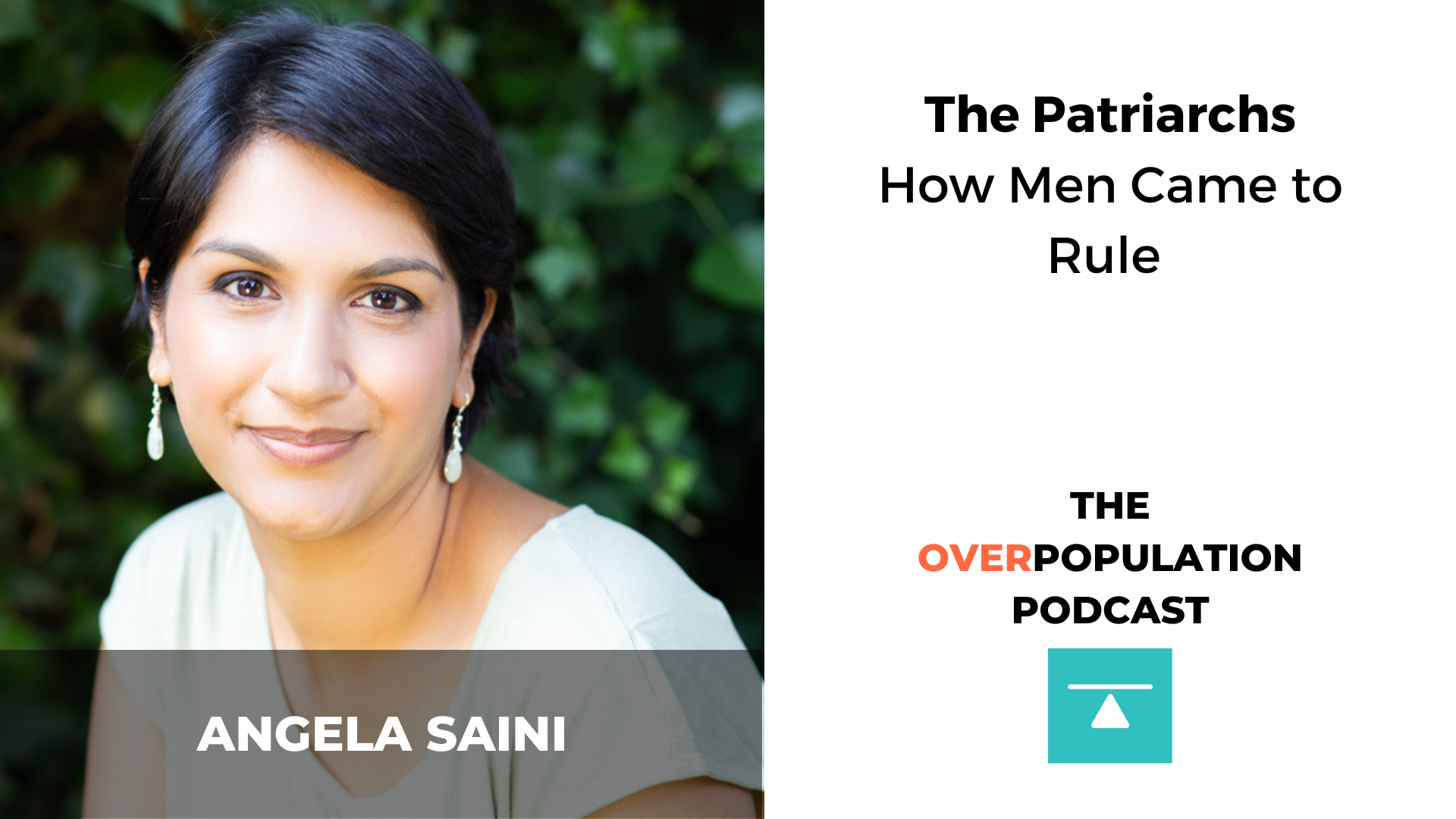
The Patriarchs: How Men Came to Rule
In this interview with award-winning science journalist Angela Saini, based on her bold and radical book The Patriarchs: How Men Came to Rule, we explore the roots and complex history of how patriarchy — in the form of gendered roles, pronatalism, and militarism — first became embedded in societies and spread across the globe from prehistory into the present.

The Toxification of Population Discourse: How Population Became a Dirty Word
When and why did population become a dirty word? And why are so many people shamed for advocating for population reduction? In this episode with political theorist and feminist scholar, Dr. Diana Coole, we unpack the history of the toxification of the population discourse over the last 30 years and the dire social and ecological consequences that this silencing has unleashed.
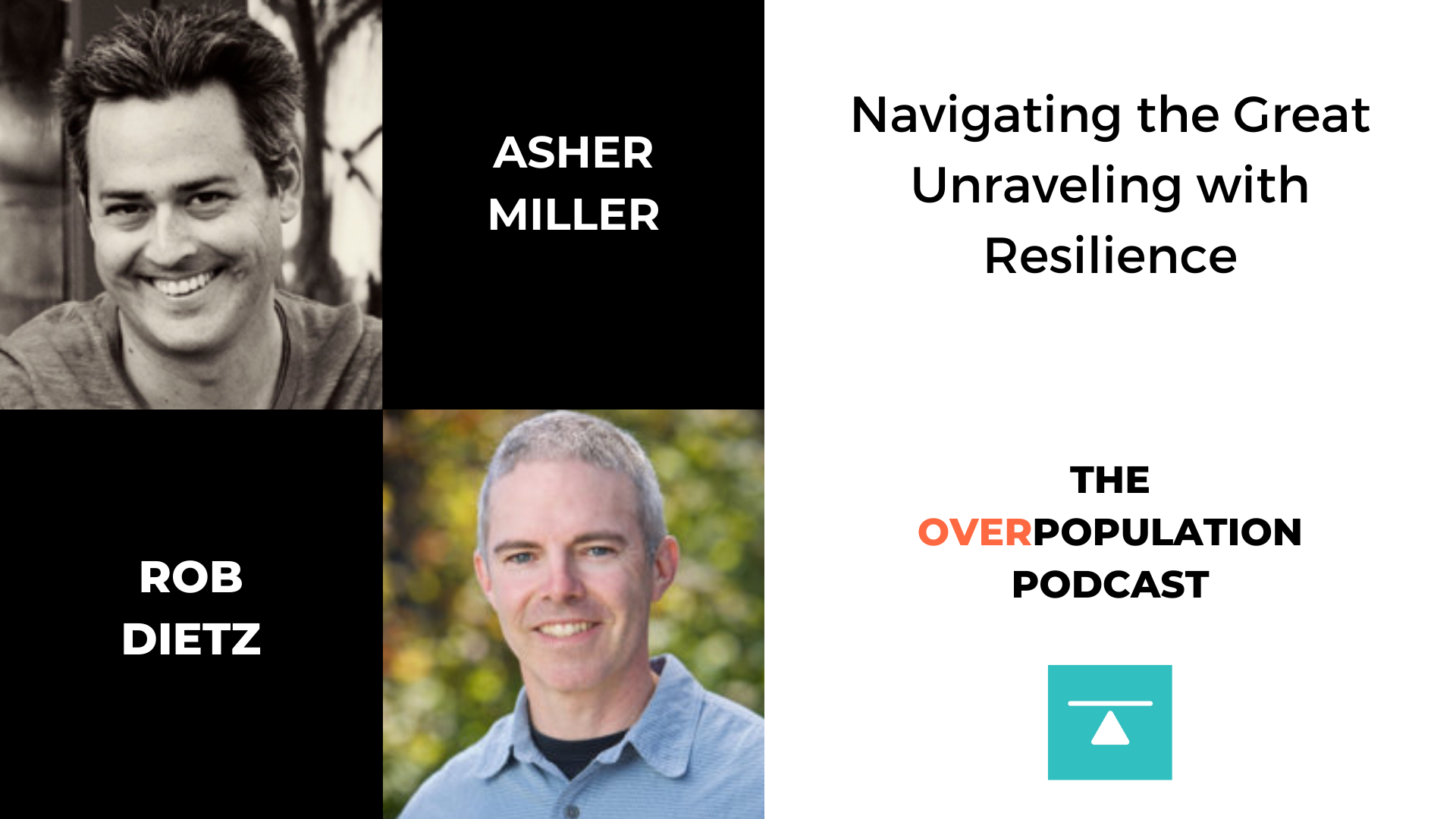
Navigating the Great Unraveling with Resilience
In this episode, we chat with Asher Miller and Rob Dietz of the Post Carbon Institute about their latest report "Welcome to the Great Unraveling", which explores ways to navigate the environmental and social breakdown resulting from multiple intersecting crises.

Phoenix Rising: Pathways toward Animal and Human Liberation
Dr. Hope Ferdowsian, president of Phoenix Zones Initiative and a public health physician, discusses how she and her colleagues are working to dismantle the roots of oppression, exploitation, and domination harming humans and non-humans, and how we can cultivate the strength and resilience needed to facilitate that “phoenix effect” transformation for ourselves and for those in need.
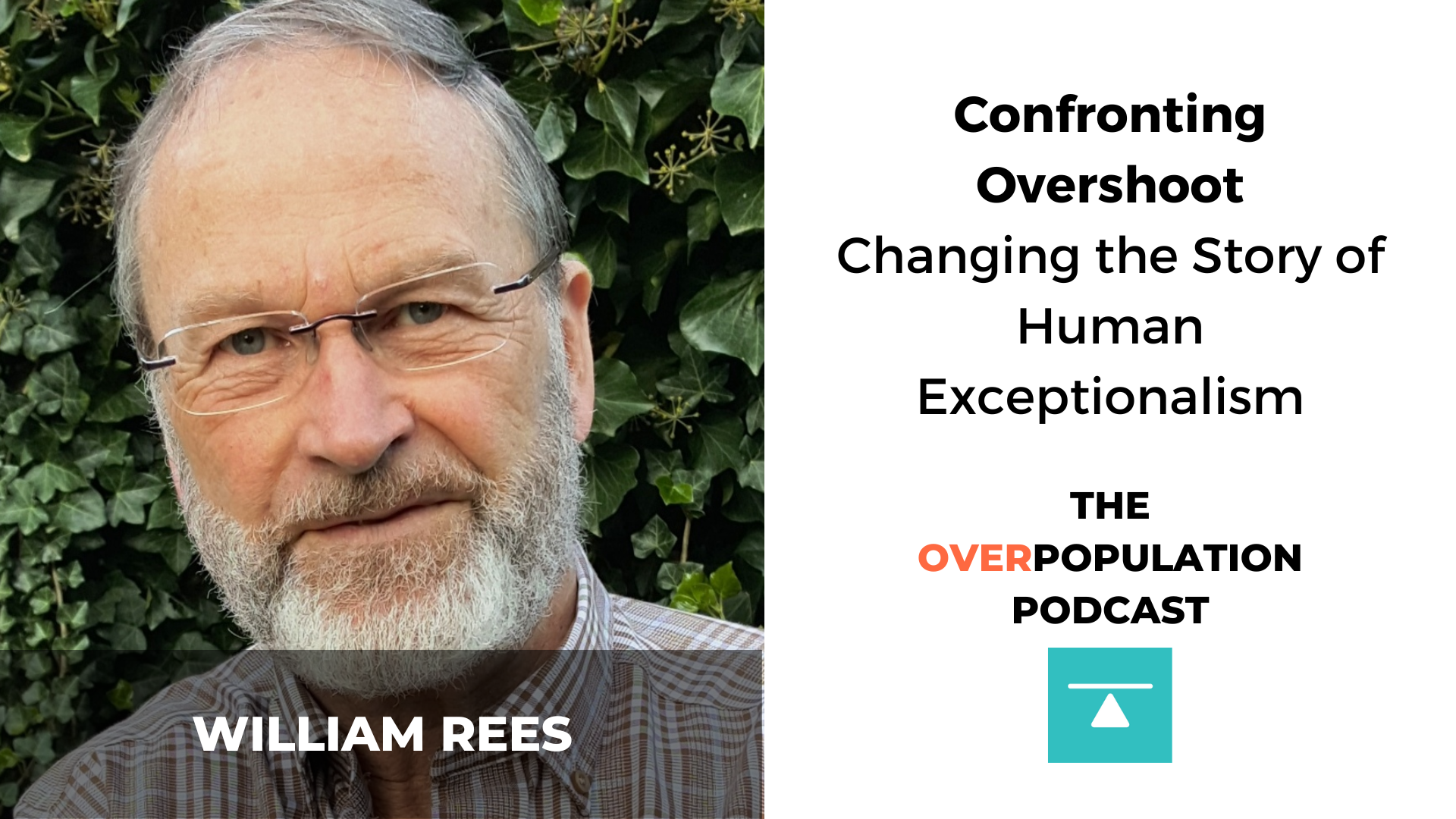
Confronting Overshoot: Changing the Story of Human Exceptionalism
We chat with population ecologist, originator of “ecological footprint”, and one of the world’s best big-picture ecological thinkers, Dr. Bill Rees. Bill explains how our blind faith in human exceptionalism, technological optimism, and neoliberal economics fooled us into disregarding ecological limits and brought us into a state of extreme overshoot. How can we confront this reality, in which we are degrading the biophysical basis of existence, to prepare for a post-industrial world?

Population Growth, Modern Slavery, and Ecocide
Dr. Kevin Bales, world-renowned expert on contemporary global slavery, shines a light on the human rights violations and ecocidal impacts of modern day slavery, and the role that population growth, patriarchal pronatalism, religion, political regimes, global and local economies, and conflict play in perpetuating it.
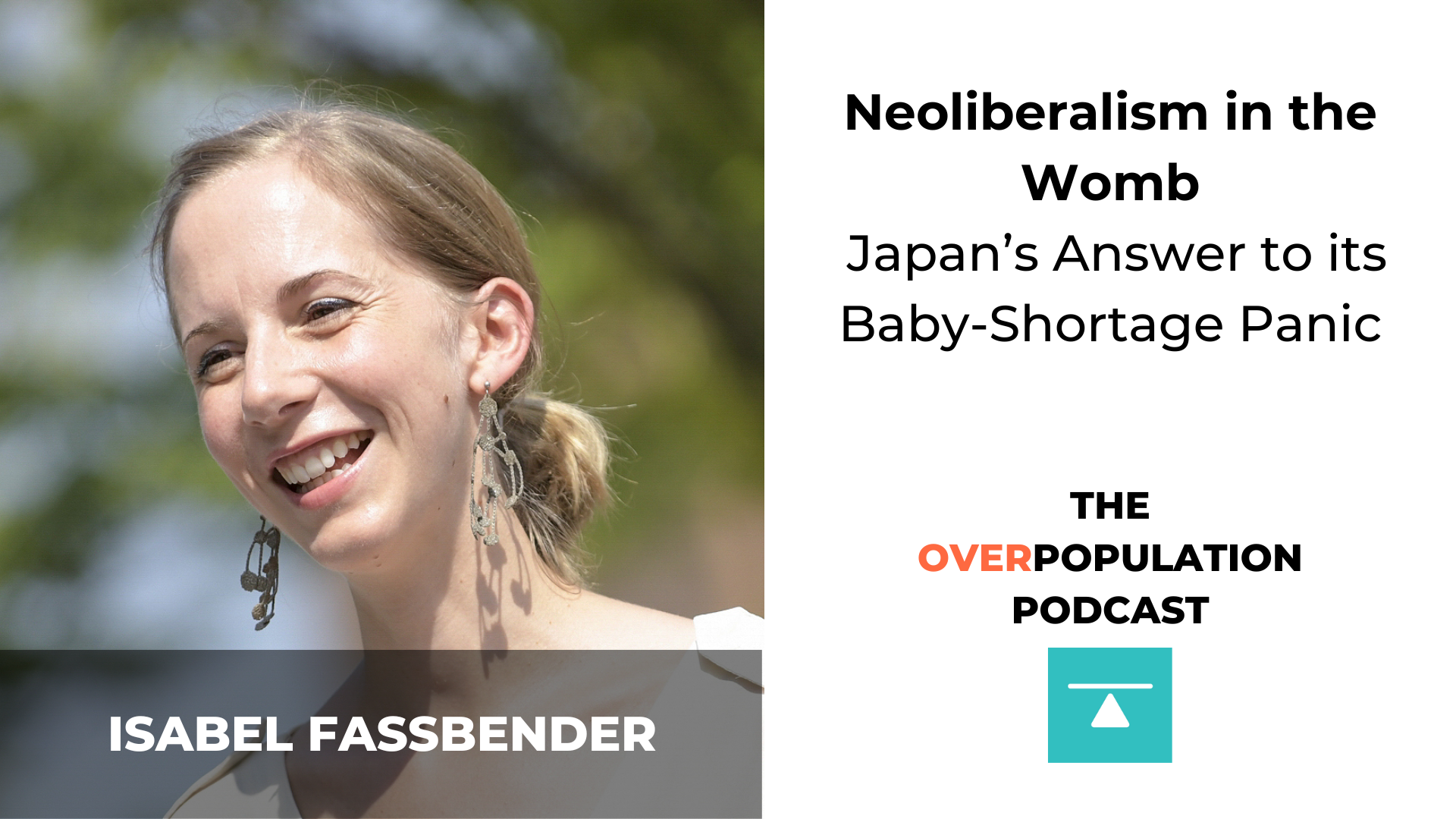
Neoliberalism in the Womb: Japan’s Answer to its Baby Shortage Panic
Japan-based feminist scholar, Dr. Isabel Fassbender, discusses the toxic mix of patriarchy, biomedical capitalism, and nationalism that has emerged in response to Japan’s slightly declining population.

Population: A Threat Multiplier for Climate Change, Biodiversity Loss, & Pandemics
In this interview with Dr. Camilo Mora, widely acclaimed professor and award-winning researcher, we discuss the impacts of human activity on climate change, biodiversity loss, resource scarcity, and pandemics, and how to move past population denial to grapple with our compounding crises.

The Environmental Impact of Overpopulation: The Ethics of Procreation
Dr. Trevor Hedberg discusses his recent book The Environmental Impact of Overpopulation: The Ethics of Procreation about the ethical implications of procreation, both in terms of the risk of harm to the child and to the planet, understanding how pronatalism influences procreative decision-making, while rejecting antinatalist and misanthopic philosophies.

From Ego to Eco: Rewilding Nature and Ourselves
What happens when we renounce our ego and allow nature to become our teacher? Rainforest conservationist and educator Suprabha Seshan chats with us about her incredible efforts to protect and restore the forest at the Gurukula Botanical Sanctuary in Kerala, India.

Engaging Boys and Men to Confront Patriarchy in Uganda
Andrew Kyamagero, an award-winning Ugandan journalist and family-planning advocate discusses the interaction of population dynamics, family planning, and male involvement in the promotion of gender equity within Uganda.

Reproductive Autonomy: A Human Right and a Foundation for a Healthy Planet
In honor of World Population Day, long-term researcher, writer, and advocate of reproductive and planetary health, Robert Engelman shines a light on the intimate links between reproductive autonomy and planetary health.

Wellbeing Economy: An Economy in Service of Life
What happens when we stop treating people and the planet like they're here to serve the economy and start treating the economy like it's here to serve us? Amanda Janoo, Economics and Policy Lead at the Wellbeing Economy Alliance unpacks the fundamentals behind the Wellbeing Economy.
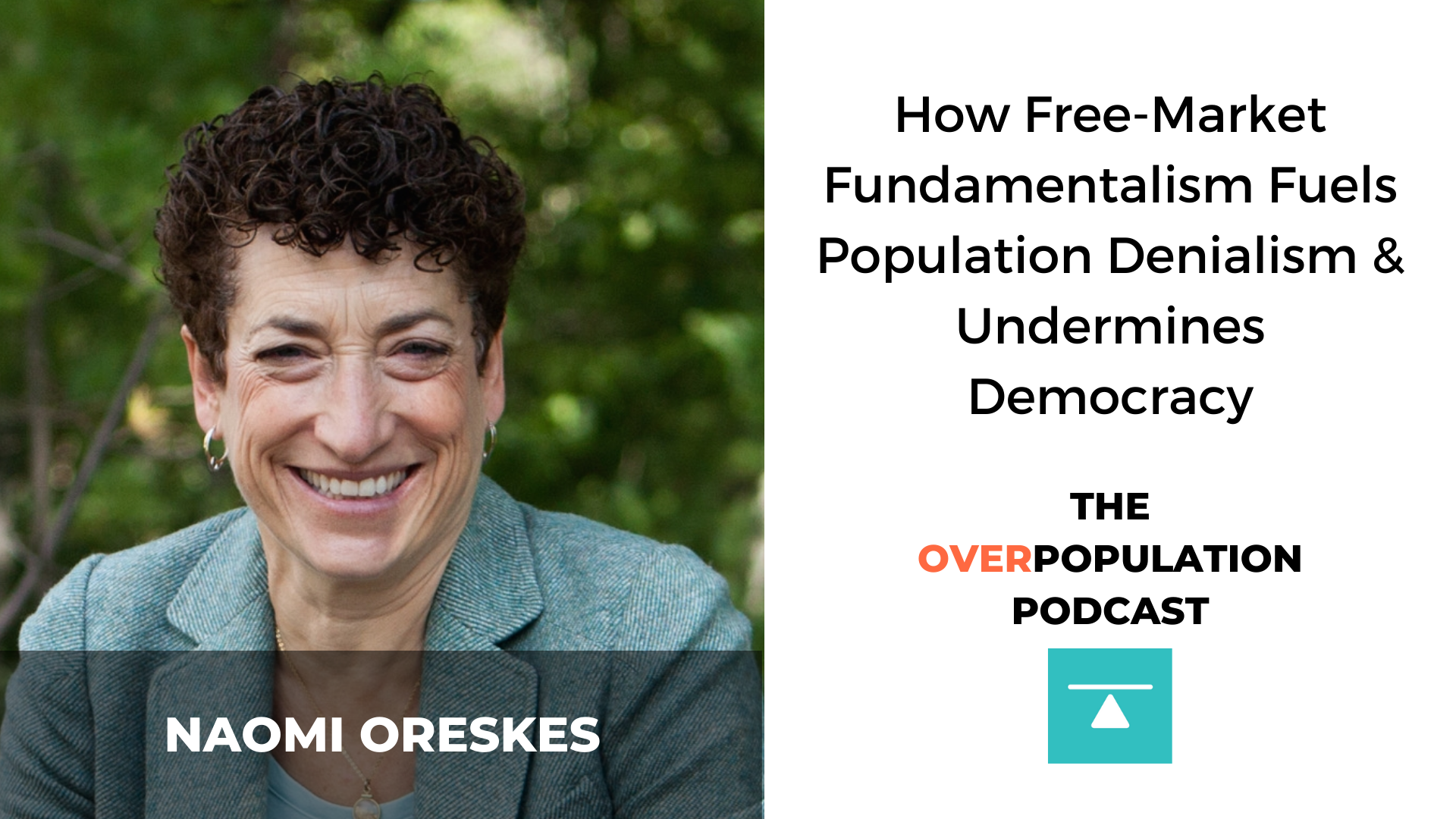
How Free-Market Fundamentalism Fuels Population Denialism & Undermines Democracy
Naomi Oreskes, a world-renowned earth scientist, historian and public speaker explains how free-market fundamentalism has had a long history of undermining democracy and exploiting marginalized communities to benefit a small minority of elites.

Powering Down: Beyond Growth, Toward Simplicity
Richard Heinberg, one of the world’s foremost experts on energy and sustainability explains why unfettered human expansionism, even with a “green” tint, is incompatible with natural limits and how we might deliberately rein in our power and move toward a culture of sufficiency, simplicity, and resilience.
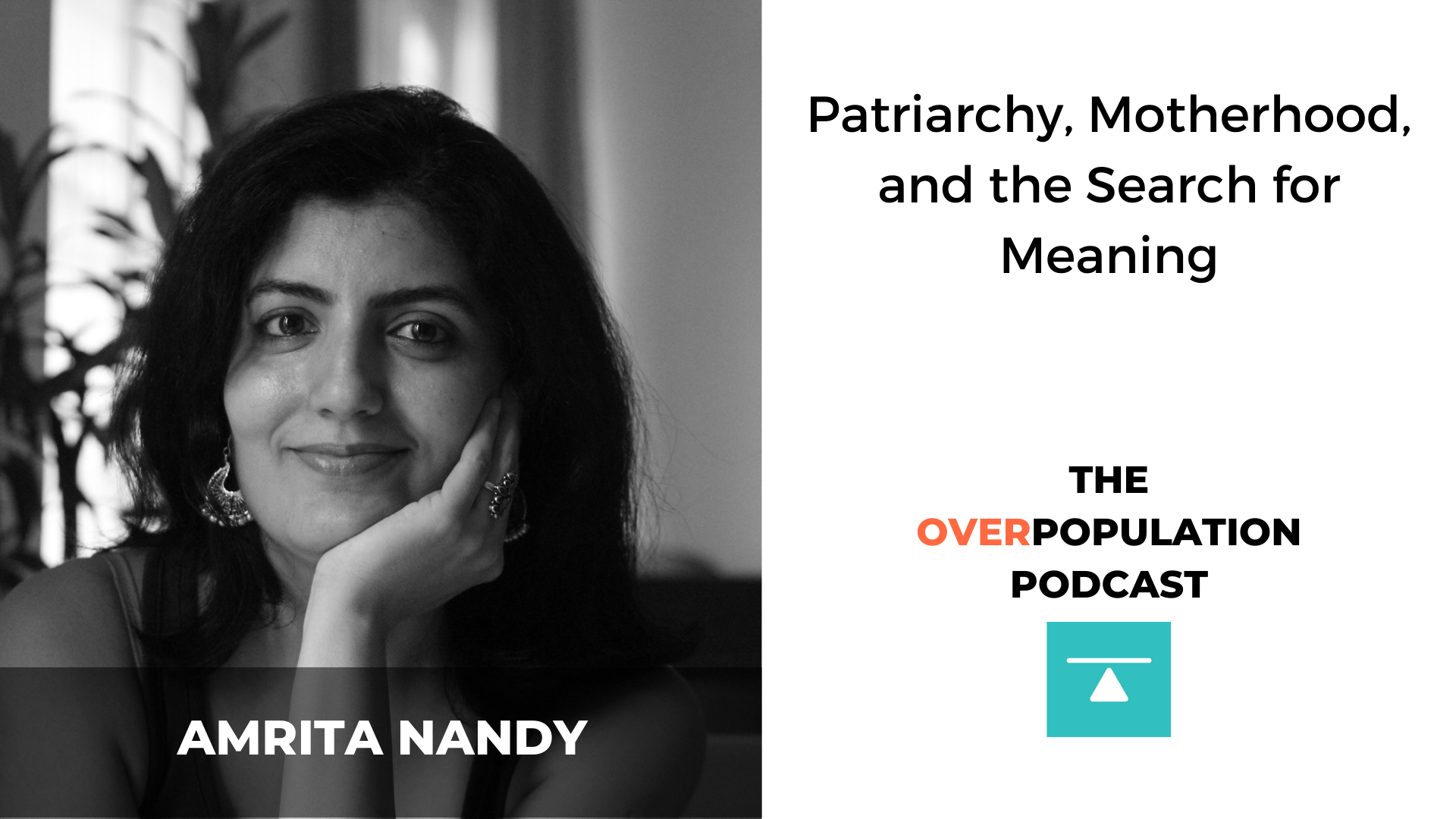
Patriarchy, Motherhood, and the Search for Meaning
Dr. Amrita Nandy, India-based feminist scholar addresses the questions: If autonomy is a basic human right, why do many women have little or no choice when it comes to motherhood? Do women know they have a choice? And how might we reimagine the widest sense of family-making and spiritual kinship that includes our love for all humans and more-than-humans?

Embracing an Aging Population & Declining Fertility with Dignity
Population economist and author of the book, Decline and Prosper! Changing Global Birth Rates and the Advantages of Fewer Children, Dr. Vegard Skirbekk takes us through decades of demographic research to show why a declining birth rate is not only a positive trend but one that can lead to more prosperity.








